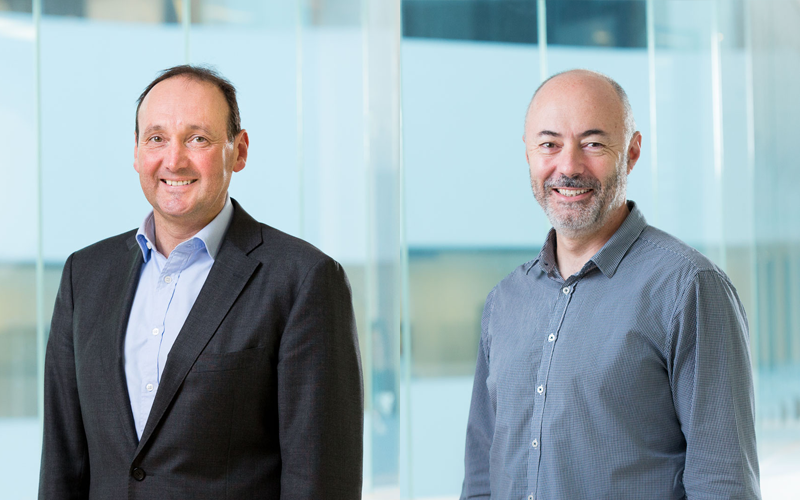Cancer Australia boost for colorectal cancer screening and treatment
Two innovative projects on colorectal cancer screening and treatment based at the University of Melbourne Centre for Cancer Research have received funding from Cancer Australia's 2019 Priority-driven Collaborative Cancer Research Scheme.

Professor Jon Emery - Cancer in Primary Care
Early detection through faecal occult blood screening is a highly cost-effective strategy to reduce mortality and morbidity from this disease, however screening is not risk-stratified.
Professor Emery's world-first trial of a new DNA test to predict risk of bowel cancer and tailor bowel cancer screening aims to increase colorectal cancer screening for those at risk, and reduce colonoscopies where deemed inappropriate. The project will collect objective health service data to measure the impact of genomic-based risk assessment on risk-appropriate colorectal cancer screening, and the costs associated with this.
Professor Emery's Cancer in Primary Care group examines the expanding role of primary care across the cancer continuum, including studies on cancer screening and risk-assessment, diagnosis and survivorship care.
Professor Frederic Hollande - Tumour Heterogeneity in Metastatic Cancer
For patients with metastatic disease, long-term survival is poor, and treatment options are limited for those who do not respond to standard chemotherapy.
Professor Hollande's project is aiming to validate a new targeted treatment for metastatic colorectal cancer, with fewer side-effects than traditional chemotherapy. The project will use organoids (3D tissue models created from tumour samples) to test targeting specific proteins on cancer cells with radioimmunotherapy, and demonstrate effectiveness as a treatment.
Associate Professor Hollande's Tumour Heterogeneity in Metastatic Cancer group at the UMCCR is working to improve patient prognosis and treatment response through understanding the mechanisms that underlie the heterogeneity within individual tumours. The group use innovative technologies such as organoids and barcoding, and work to characterise the role tumour heterogeneity plays on metastatic progression.
Together with the Australian Government, $8.9 million was invested in 24 cancer research projects. Read the full announcement on the Cancer Australia website.